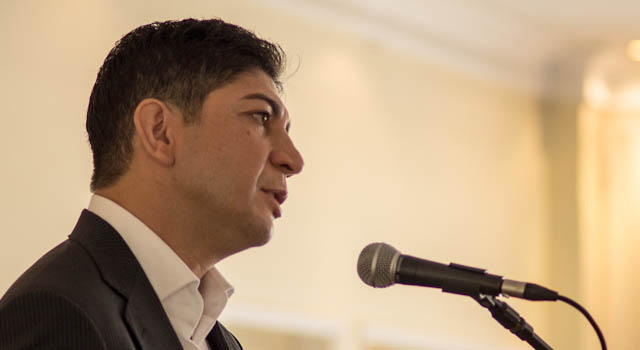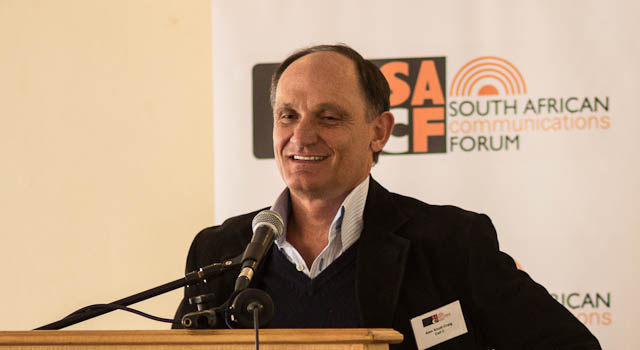
Fibre-to-the-home networks must play a part in SA’s goal to provide universal access to broadband by 2020, says Vodacom group CEO Shameel Joosub.
Next-generation broadband technologies like long-term evolution (LTE) are also crucial and Joosub says that in order to roll out national networks government must fast-track access to spectrum.
Joosub — speaking at an SA Communications Forum breakfast event together with Cell C CEO Alan Knott-Craig and communications minister Dina Pule — says operators and government must work together if universal coverage is to become a reality.
In order to provide access to SA’s 14m households, Joosub says a combination of fibre-to-the-home (FTTH) and LTE is needed. “Vodacom is ready to invest in FTTH if there’s the right co-investment partner,” he says. “A lot of us are digging up the same roads over and over again, but only in the cities. There’s an opportunity to partner.”
There are various players with fibre in the ground, including Broadband Infraco, MTN and Cell C, and Joosub says if companies in the sector were to combine their resources the right backbone for next-generation broadband could be built.
He says if a wholesale model is the best means of rolling out next-generation broadband and providing universal access, then Vodacom will welcome it. One of the obstacles to next-generation broadband is sufficient fibre connectivity to base stations and, to correct this, operators need to work together, he adds.
Lack of access to spectrum is also a problem. “We need to move [to] the digital dividend faster so that the 800MHz [band] can be made available. That will give us the full power of LTE and allow us to connect the country.”

Speaking at the same event, Cell C’s Knott-Craig says the cost of telecommunications is a crucial issue and prices must come down. “The only way we can get prices down is to look at input costs and bring those down.”
Some of these costs are under the control of operators themselves, while others are the responsibility of the Independent Communications Authority of SA or government. Operators, the regulator and government must look inwards and reduce input costs where they can, Knott-Craig says.
Joosub says prices “will come down” and that Vodacom is “ready for the challenge”. He says competition will drive price reductions and agrees with Knott-Craig that reducing input costs is essential.
“Co-investment will help do that,” Joosub says, adding that it’s also important that processes relating to network expansion be sped up and that spectrum be made available. Given that companies like Vodacom have the resources to provide next-generation broadband, the fact that they are “starved of spectrum” is a “travesty”.
But Knott-Craig says that instead of arguing about spectrum, the focus should be on creating a “national wholesale network built at a lower input costs where people can compete at a retail level”.
He says it is “inevitable” that there is going to be some consolidation in the industry and that the introduction of new mobile virtual network operators is just one instrument to create new players and new participants. — (c) 2012 NewsCentral Media




